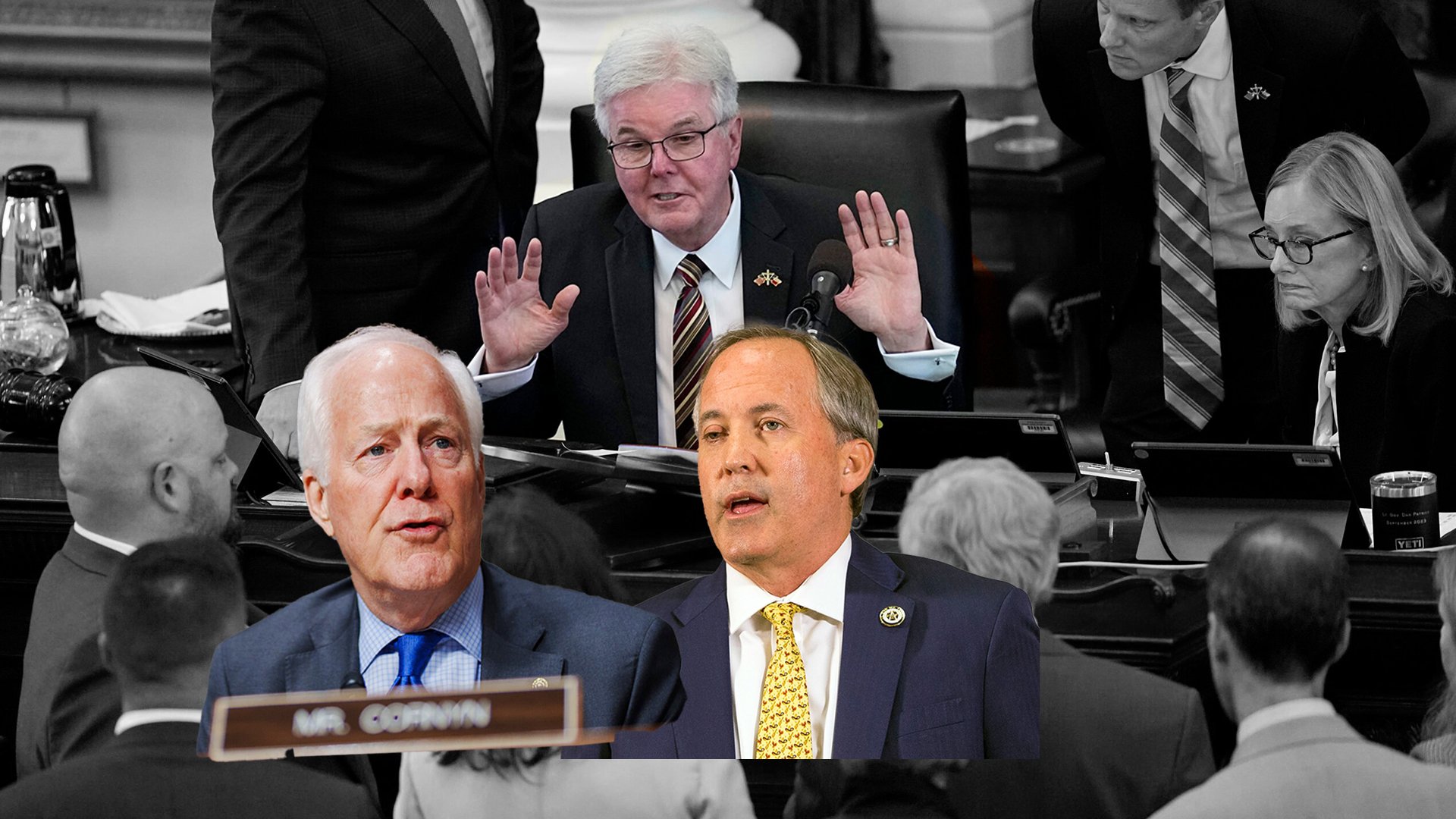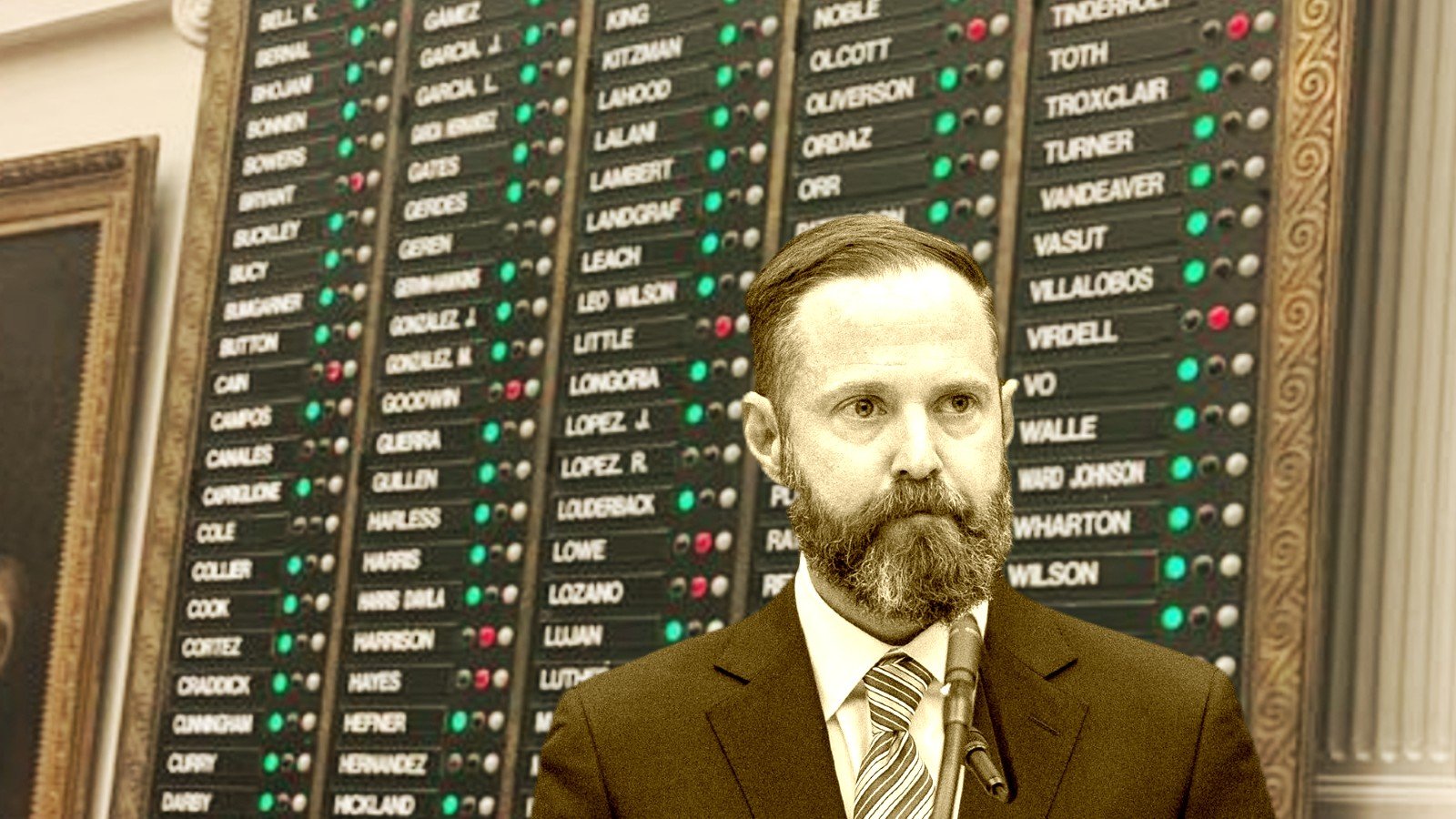
The Lege’s ‘Big Government Intrusion’ into University Academics
Expanding on last session's anti-DEI campus crackdown, Republicans are now going after gender and ethnic studies programs and faculty independence.
Even at Texas Woman’s University, whose very name shows its legacy, gender studies programs face potential pushback from lawmakers.
Just three years ago, Texas Woman’s University (TWU) approved a new bachelor’s degree program in Multicultural Women’s and Gender Studies. Danielle Phillips-Cunningham, who began teaching at the university in 2011, proposed the new major as a way to bring more students into the program amid decreases in enrollment during COVID-19. Phillips-Cunningham said the undergraduate students she taught had a clear desire to major in the field. “The courses really do a good job of demonstrating the links between politics and people’s personal lives,” Phillips-Cunningham said.
Despite having recently downsized their department, she saw the university’s approval of the new degree program as a sign of its commitment to this academic field. At the time, other institutions had begun to cut funding for similar programs as reactionary animus against Diversity, Equity, and Inclusion (DEI) set in.
“I knew that I would have to craft the proposal in a way that didn’t ring any alarms, but was also true to what could help students,” said Phillips-Cunningham, who is now an associate professor at Rutgers University. If proposed today, she doesn’t think the degree program would have gotten approved. In the years since the program’s inception, wariness or ignorance of DEI has been weaponized by Republicans in Texas and across the country as a political bludgeon to condemn, and often call to eliminate, anything remotely related to race, gender, or sexual orientation on college campuses.
Legislators directed intense scrutiny toward DEI initiatives in higher education last session, with passage of Senate Bill 17, a law prohibiting DEI offices and practices at Texas’ public universities. Following its implementation, universities shut down multicultural and gender and sexuality centers—and cut over 100 positions. Academia and scholarly research were, however, excepted under the law, leaving degrees and programs like Texas Woman’s University’s safe, at least for the time being.
But at the outset of the 2025 session, Governor Greg Abbott signaled he wanted to continue pushing against what he considers DEI in higher education. “We must purge it from every corner of our schools and return the focus to merit,” Abbott said during his State of the State address in February.
Now, legislators have launched attacks on targeting gender and ethnic studies departments, programs, and courses, which some educators say threatens academic freedom and the prestige of Texas universities.
GOP state Senator Brandon Creighton, who authored SB 17 last session, has returned to the issue this year with a bill that more squarely targets academics and curriculum. Senate Bill 37, which is one of Lieutenant Governor Dan Patrick’s priorities, increases oversight of universities, including reviewing core curricula every five years to remove any courses that attempt to “require a student to adopt a belief that any race, sex, or ethnicity or social, political, or religious belief is inherently superior to another, or to adopt any other similar ideology.” These reviews would be conducted by the university’s governing board, though the board can appoint a committee of anyone they’d like to help. Abbott appoints all members of the boards of regents at public universities.
The Texas chapter of the American Association of University Professors said the bill represents “undue Big Government intrusion into our public community colleges, universities, and health institutions … and places public higher education in Texas in receivership where faculty are sidelined and Governor appointees make all the decisions on what students can and cannot learn.”

Some universities have already taken preemptive action in the face of political threats. Last November, Texas A&M University disbanded its LGBTQ+ studies minor, along with 13 other minors and 38 certificates, citing low enrollment. The University of Texas at Austin announced on April 7 it was immediately ending its “Flags” course requirements, making it so students no longer need to take classes labeled as covering “cultural diversity,” “global cultures,” or “independent inquiry,” among others, to graduate.
Karma Chávez, chair of the Mexican American and Latina/o Studies Department at University of Texas, said targeting flags or core curricula would be “deeply damaging” because courses that fulfill degree requirements attract more students. “That would gut our classes,” Chávez said.
The university founded the Center for Mexican American Studies in 1970 in response to Chicano student activists calls to include more Mexican-American curriculum. The program was departmentalized in 2014, which Chávez said gave it more “intellectual autonomy.” The move was supported by the president of UT at the time, William Powers Jr., according to Chávez.
Now, the department could be at risk if SB 37 becomes law. The bill would monitor and potentially disband degree programs based on an analysis of student debt levels per degree program. The Texas Higher Education Coordinating Board would be empowered to review programs every five years; universities would not be able to use state funds for programs that get unfavorable ratings. “It’s not about all courses,” Creighton said of his bill on the Senate floor. “It’s about degrees of value and how to get there faster and cheaper.”
SB 37 would also expand control over faculty councils by allowing only the governing board to establish a council. Members may be removed if they’re deemed to have used their university positions for “political advocacy.” The politically appointed board would also be able to overturn any decision made by university administration, including personnel hires or changes to curriculum.
Just ahead of a floor vote on April 15, Creighton filed a 13-page amendment that substantially altered the bill. Democrats criticized Creighton’s bill for what they saw as a blatant targeting of universities’ academic independence and questioned if professors could still discuss topics involving race, gender, or ethnicity.
When asked about specifics of what professors can teach, Creighton said those decisions would be deferred to a new curriculum advisory committee that, under SB 37, would be made of three governor appointees, two lieutenant governor appointees, two speaker appointees, and the commissioner of higher education.
“I’m concerned that we’re not preparing our next generation for a better society and to continue the work of healing our deep racial wounds that we’ve talked about on this Senate floor,” said Houston Democratic Senator Borris Miles during debate.
Senator Roland Gutierrez, a San Antonio Democrat, proposed a bipartisan committee to look at the decisions of governing boards. “There’s nothing in the bill to protect against a body that says ‘This is what history is,’” Gutierrez said. Creighton rejected the amendment, saying the boards will rely on “well-rounded and properly vetted advice.”
The Senate passed the bill 20-11 on party lines.
The House also has several bills that would expand administrative control of academia and target higher education curriculum—including gender and ethnic studies—though they’ve not yet gotten much traction. GOP state Representative Cody Harris has a bill that would prohibit universities from requiring students to take courses that teach “critical theory” relating to race and gender, along with other supposedly controversial topics. Republican state Representative Brian Harrison’s House Bill 2339 would attempt to eliminate programs wholesale. His bill would prohibit universities from offering courses, programs, or degrees in LGBTQ+ studies or “DEI studies,” defined as courses that “promote differential treatment of individuals on the basis of race, color or ethnicity.” Universities found to be in noncompliance would lose state funding, and professors violating the bill would be placed on a no-hire list.
“It feels like the inmates are running the asylums in our public universities,” Harrison told the Texas Observer. “Taxpayers are having their tax dollars weaponized against them, their values, and their children by funding things like DEI and liberal transgender ideology.” His bill has not yet received a committee hearing.
Gender and ethnic studies programs and departments receive about $12 million, which is less than half of a percent of the University of Texas’ total operating budget for the 2024-25 fiscal year, the Observer found. At TWU, the Multicultural Women’s and Gender Studies program made up about 0.1 percent of the university’s operating budget in 2024.
Sonia Hernández, a history professor at Texas A&M University, said this sort of legislation is an “intensification” of SB 17 from last session and warned that limiting opportunity for students and professors to debate certain topics has the potential to “chip away” at the value of American universities.
“There is a rationale behind allowing faculty and scholars the flexibility to ask really important questions that may or may not go with the current thought of the time, but that can help spark meaningful debate and discussion,” Hernández said.
In the SB 37 hearing, Senator José Menéndez said he worried the bill would “rob students of an opportunity” to take classes that don’t necessarily have a tangible purpose for their career.
Texas universities, such as Texas Tech University and the University of Texas at Arlington, first began offering coursework or started centers in the women’s and gender studies field in the 1970s and 1980s. TWU began offering a master’s program in 1998, and its doctoral program became active in 2010, said Agatha Beins, who is the current director of the Multicultural Women’s and Gender Studies Program.
Beins hasn’t seen such targeted attacks on academic freedom during her time in academia since she first started teaching at TWU in 2011. Despite the political attacks, the professors said the program has received support from the university itself and from faculty. About a dozen programs regularly cross-list courses, allowing women’s and gender studies to collaborate with other areas of study across the university.
The beauty of women’s and gender studies classes are the transferable skills they offer, Beins said. “You can start noticing these patterns of justice or injustice and inequity or equity, notice them, better understand why they occur, and then figure out more effectively how to problem solve,” Beins said. “That’s what we lose when we are unable to teach students about the breadth and diversity of human difference.”
Alix Pierce was one of the first people to graduate with a bachelor’s degree in Multicultural Women’s and Gender Studies from TWU. Pierce hopes to go into academia and apply the research skills they’ve learned, but they also apply their degree everyday at their current job working at a group home for queer youth.
“I have learned how to vocalize things and be able to advocate for things that I need or other people need,” Pierce said. “They have experienced all these things in their lives, but they probably don’t necessarily know how to vocalize it in the same way that I do, because of the education that I received.”
At TWU, students are required to take a multicultural women’s studies course to graduate. Pierce, who was a teaching assistant for an introductory class, said students were appreciative of the class, even if most did just take it as a requirement. “[Students saw], ‘Oh, every single woman in this class right now has experienced the same things as me,’” Pierce said. “Your experiences are validated.”
Driven in part by an increasingly conservative political climate that is fueling these attacks on higher education, faculty have begun to consider leaving the state. Over half of Texas professors would not recommend the state to their out-of-state colleagues, according to a survey released by the American Association of University Professors. In 2024, over a quarter of faculty planned to interview in another state, the survey showed.
Phillips-Cunningham said such attacks on ethnic and cultural studies are leading to a “brain drain” in the South—Black professors in particular have left Texas because of challenges to their work, she said. While the Legislature might be focused on gender and ethnic studies now, she said, she wouldn’t be surprised if it starts going after more traditional majors next.
“It’s just a total gutting out of every single inch of progress this country has made in several different areas,” Phillips-Cunningham said.




